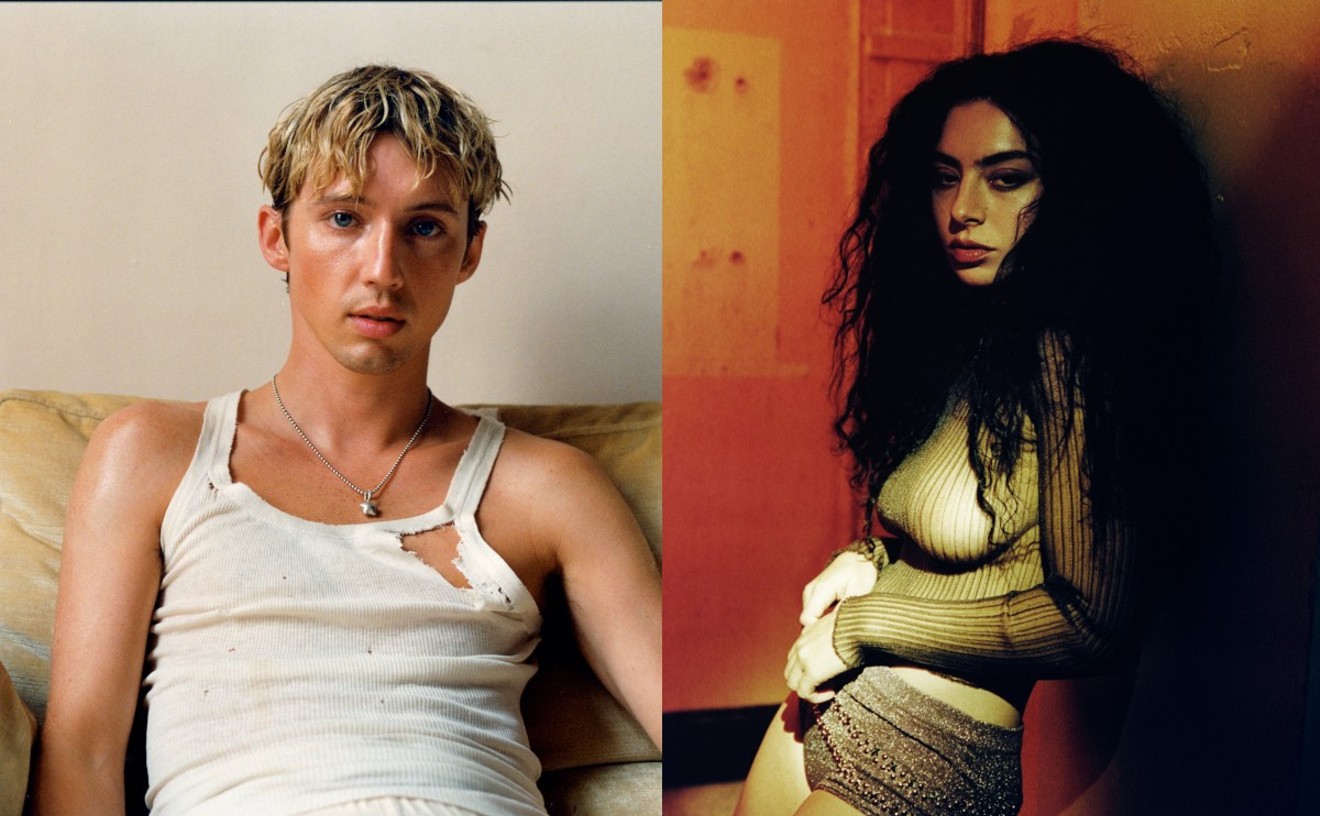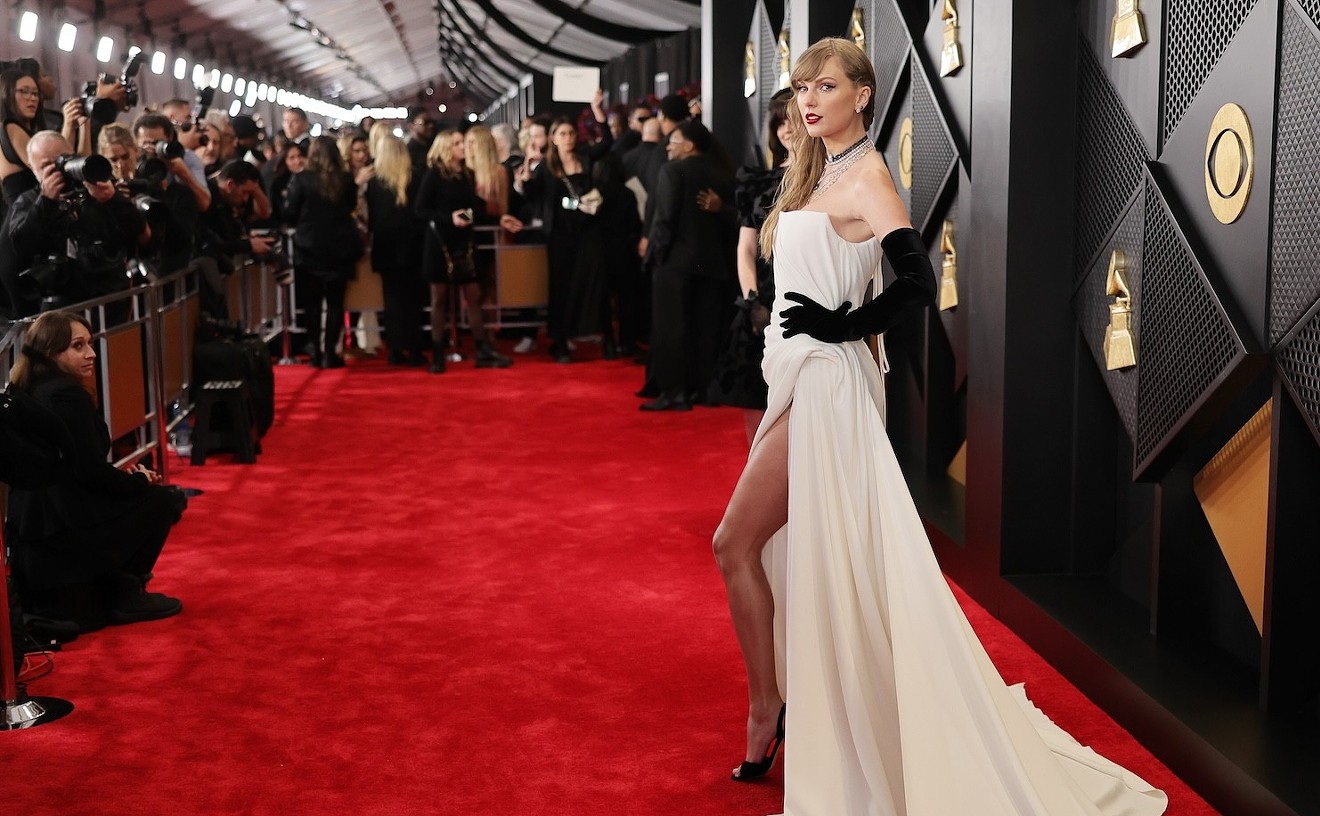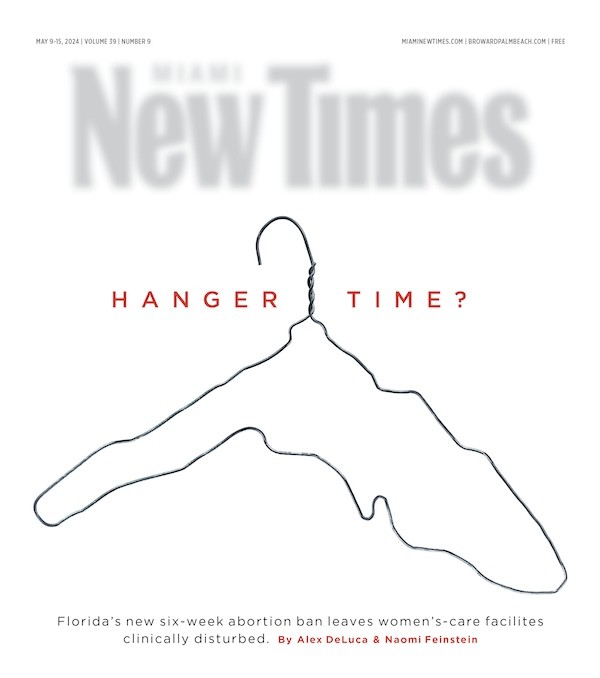"When he finally understood that I was serious about learning how to spin records, he'd have me sit there for hours spinning the same two records for six hours." DJ Donnie Lowe says, explaining how he learned the craft from club veteran Matt Spector. Lowe taps his feet and leans his forearms onto his half of the table. "I guess he was making me do it until he felt like I wasn't going to train wreck."
Lowe says he learned the art of mixing records about five years ago -- one that seems to be disappearing from the house scene altogether these days.
"Mostly it was so that I didn't feel like I could just hop up there with a MacBook with the most recent top ten and just run it through," Lowe says. "Learning to beat match by ear instead of just seeing those stats on a screen is essential to the craft."
Now the resident DJ at Gryphon Nightclub at the Hard Rock Hotel and Casino in Hollywood, Lowe understands the usefulness of certain programs and other digital attributes of creating an energy dense environment. He spent the last few years mixing with CDs, then moving on to USB drives. These days, he goes to work with two main tools -- a USB drive and a stack of records.
"All of those digital tools are pretty neat," Lowe admits. "Programs like Traktor that have effects and tools that line up your tracks are really useful, but when you're just trying to mix two records at a time like I do, they don't serve the same purpose."
Using records gives Lowe credibility, which makes him stand out amongst head-boppers and molly-poppers. A lot of people can put together a pretty playlist, but it takes a little more to reach legitimate DJ status.
"Not everyone spins vinyl," Lowe notes. "And you don't have to in order to be respected," he says charitably, "but it is a part of the art form. I am always on the hunt for records, searching for tracks that a lot of people either haven't heard in a while or have never heard."
Lowe believes in building sets that avoid all of those songs often heard on the radio, too, which just may be why the demands for his live sets are becoming increasingly more popular these days.
"If it makes me a music snob to say I don't consider the stuff on the radio dance music, then I guess I am a music snob," Lowe professes. "The listeners are just as responsible for it as the guy up there laying down tracks. I don't understand the partygoer that can hear the top 40 stuff all day at work or in the car and then want to go and dance to it on the weekends. No matter how it's mixed."
With EDM acts moving into the mainstream -- Daft Punk just topped the Billboard charts two weeks in a row -- some house/techno "sell-out" so to speak, playing regular, reliable sets in order to stay booked. Others are still experimenting.
"The effect that seems to come along with playing it safe is shorter sets," says Lowe, who just finished a five hour set at Club Space in Miami last weekend. "Some of these guys out here are playing sets for hours at a time. I just watched DJs over the weekend play extended sets, six to twelve hours. A lot of people can't do that."
Lowe uses the phrase "wash, rinse, repeat" to describe the uniform sound that's developed in the scene, "It's becoming the same formula of build, build, build and then drop. Eventually the sets have to get shorter if everyone is going to be doing the same thing."
There is one track Lowe admits could never get old no matter how often he plays it.
"Uto Karem's edit of 'When Doves Cry' just turned a whole room around the last time I saw Luciano play," Lowe beams. "It took me months to track down that record and then one morning it just appeared in my Dropbox, delivered by one of my buddies. If you don't hear that track in one of my sets, you know something was off. And if that track doesn't do it for you, you are beyond the help I have to offer."
Lowe has his earworm moments, but definitely plays a different set each time. "Another [favorite] is Midnight Society's edit of 'Everybody Everybody' by Black Box. Something about it just works for me."
Lowe looks forward to his chances to play long sets. He says of the nights where he gets to play six to eight hours, at Gryphon for example, "That is when you really start getting into the sound. Sometimes that doesn't happen until two hours into it and by that time, a lot of DJs are packing up."
Reminiscent for of the time when DJs used to break records, Gryphon's Lowe doesn't just play pre-recorded music from other artists, he also mixes and produces unique tracks that he introduces to his crowds and that he hopes become irresistible.
"Ed Whitty and I just mixed this original track that samples this recording I made from a Bob Marley documentary. Something about the sound and the subject matter--I just fell in love with it," says Lowe. "We used the parts that have Marley talking about the music business and Rastafarian values."
This sort of innovation is a call back to old-school sampling. The aforementioned track, "Rebelution," is to be released later this month, but can be previewed on his SoundCloud page as well as list of other tracks he's innovatively mixed.
"Something about hearing those musicians back in a day when the industry seemed so much more clean and the artists were making music for themselves as much as everyone else is a cool message to set to a beat," Lowe gushes. "For instance, my first solo recording, 'Life and Music,' samples an interview with Jimi Hendrix. He talks about how a musician can't afford to give two shits if people like what they are doing because it just defeats the purpose. Samples like that really drive home that message."
Although he never actually played an instrument growing up aside from the recorder, ("The one that everyone had to play," Lowe, laughs) Lowe says, "I have an ear for what works. Sounds and how they can come together."
These days, Lowe has multiple collaborations with other DJs ready for release, and some in the works. He respects the more aggressive DJs in the scene, they match that respect for him and seem eager to pair up.
"Gryphon is my home, but lately I have been given these opportunities to explore what's beyond that," Lowe expresses with a tinge of guilt. "But what's cool about branching out is that every time I return to Gryphon, there are folks coming from Miami or Palm Beach to listen in now."
Thinking back to the day that Spector made him mix the same two records over and over for hours, he says, "I remember being so sick of hearing those songs...but at the end of the day, it's what's given me the appreciation for the art form and ultimately the confidence to step outside of that box."
Follow @CountyGrind










